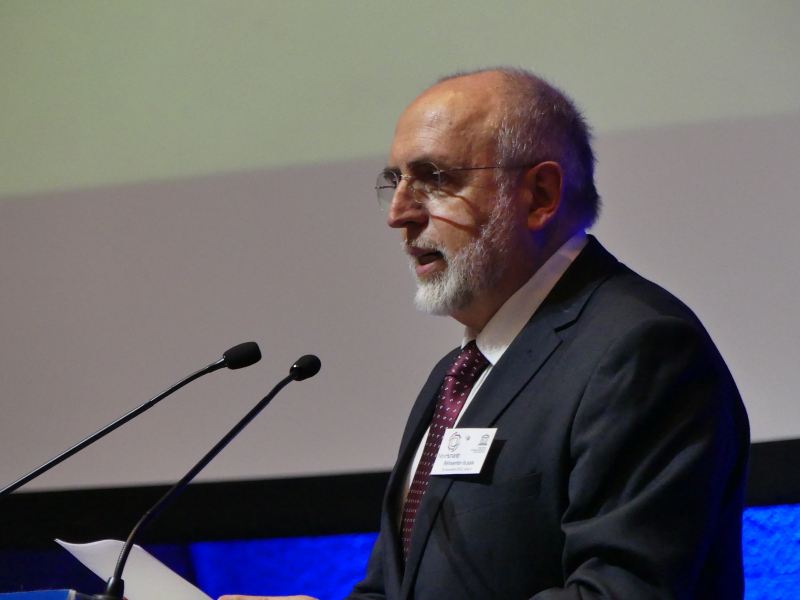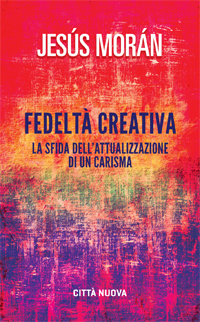20 Jun 2017 | Non categorizzato
June 20: Pope Francis visits two Italian towns,Bozzolo and Barbiana, “to pay homage to Fr Primo Mazzolari and Fr Lorenzo Milani, the two priests who today offer us a timely message. I thank those, especially the priests, who will accompany me with their prayer,” said the Pope at the Angelus on Sunday, 18th June. The visit to the tombs will be a significant gesture as both priests had reputations of being anti-establishment and therefore marginalised. They were precursors of the Second Vatican Council and forerunners of the Church of the Poor, as Pope Francis himself pointed out, holding them up as examples to follow.
20 Jun 2017 | Non categorizzato
In 2000,on the occasion of the 50th anniversary of the Convention related to the status of refugees, the UN established that this Day would be celebrated each year on 20 June. The aim of this assigned day is to make the public aware of the condition of migrants. This concerns millions of people who are forced to escape from wars and violence, leaving their loved ones, homes and all that are part of their life. Behind each one there are stories that are worth listening to, full of suffering, humiliations and the desire to rebuild a future. The Projected Global Resettlement Needs 2017 report affirms that in 2017 the forecasted number of people in need of resettlement will reach 1.19 million, 72% more than in 2014. Along with voluntary return to their countries, this is one of the best solutions for the refugees, including integration into the host societies.

20 Jun 2017 | Non categorizzato
 With a radio transmission emceed by Alessandro De Carolis, Radio Vatican journalist, the author dialogued with Fr. Julián Carrón (president of the Communion and Liberation Fraternity) and Maria Grazia Vergari (vice president of the Adult Section of the Catholic Action). Here are some excerpts of the interview that Giorgia Bresciani, journalist of “InBlu Radio,” held with Jesús Morán on 30 May: G. B.–The presentation of your book was the occasion to experience a moment of dialogue and fraternity between the ecclesiastic movements. In the Pentecost of 1998, John Paul II and at that time, Cardinal Ratzinger initiated a joint pathway of communion between all movements. What do you think happened that day and what point of that journey have we reached? J.M.–I think that 29 May was really blessed by the Holy Spirit, and was a grace for us. I remember that Feast of the Pentecost of 1988 vividly, and it was one of the most beautiful days of my life. It seemed as if the first Pentecost had become a concrete reality, due to the presence of many people, and an unforgettable day! I had arrived from Chile where I was living. It was effectively a historic moment, an ecclesial event because for the first time, the new movements had gathered in St. Peter’s Square all together. It was a fundamental encounter between the charism of Peter and the charisms created by the Holy Spirit in our epoch. It was like going public, giving visibility to the ecclesial charisms, and an “acknowledgement” of this fact. Since then the journey has progressed with ups and downs. This experience extended also to ecumenical levels and saw the creation of “Together for Europe.” We thus committed ourselves to the unity of all Christians. Then there were other joint encounters between the movements. Over the years, however, some of the founders passed away, and obviously this slowed things down: the deaths of Fr. Giussani, Chiara Lubich and other leaders, had an impact because this reality of unity and communion of the movements had been decisively their idea.
With a radio transmission emceed by Alessandro De Carolis, Radio Vatican journalist, the author dialogued with Fr. Julián Carrón (president of the Communion and Liberation Fraternity) and Maria Grazia Vergari (vice president of the Adult Section of the Catholic Action). Here are some excerpts of the interview that Giorgia Bresciani, journalist of “InBlu Radio,” held with Jesús Morán on 30 May: G. B.–The presentation of your book was the occasion to experience a moment of dialogue and fraternity between the ecclesiastic movements. In the Pentecost of 1998, John Paul II and at that time, Cardinal Ratzinger initiated a joint pathway of communion between all movements. What do you think happened that day and what point of that journey have we reached? J.M.–I think that 29 May was really blessed by the Holy Spirit, and was a grace for us. I remember that Feast of the Pentecost of 1988 vividly, and it was one of the most beautiful days of my life. It seemed as if the first Pentecost had become a concrete reality, due to the presence of many people, and an unforgettable day! I had arrived from Chile where I was living. It was effectively a historic moment, an ecclesial event because for the first time, the new movements had gathered in St. Peter’s Square all together. It was a fundamental encounter between the charism of Peter and the charisms created by the Holy Spirit in our epoch. It was like going public, giving visibility to the ecclesial charisms, and an “acknowledgement” of this fact. Since then the journey has progressed with ups and downs. This experience extended also to ecumenical levels and saw the creation of “Together for Europe.” We thus committed ourselves to the unity of all Christians. Then there were other joint encounters between the movements. Over the years, however, some of the founders passed away, and obviously this slowed things down: the deaths of Fr. Giussani, Chiara Lubich and other leaders, had an impact because this reality of unity and communion of the movements had been decisively their idea.  An occasion like that of 29 May is a push to continue their work. We are now in a post-founding phase and have to restart from that “prophecy.”And the presentation of my book is oriented in that direction. G.B.–You mentioned the death of some founders. Precisely you, Maria Voce, and Fr.Carrón, are in that “post-founding period,” the “second phase” which is a tricky one: you have a complex and exciting task. In the light of your position, what do you think an ecclesial movement needs most in this phase? J.M.–I believe that the “post-founding” phase isalso a charismatic one.There are different types of graces from those bound to the founding moment, and lies in the perspective of the incarnation: the great challenge is that the charism, following the trail of the founder, increasingly becomes “history.” It is thus a phase of service to the Church and to humanity. This calls for a different kind of maturity. We have to work together, bringing to light personal and community talents, because when the founder is present, the light of the charism is very strong, and the founder “incarnates”it almost by herself. Now God wants us to start up our charismatic intelligence and our forces. And we have to do it together! This is the great challenge. This is what I tried to say with this concept (already used by John Paul II) of “creative fidelity”: faithfulness to the charism, and at the same time, capacity for innovation and creativity, always a fruit of the Holy Spirit, and greater insertion into the Church and society.
An occasion like that of 29 May is a push to continue their work. We are now in a post-founding phase and have to restart from that “prophecy.”And the presentation of my book is oriented in that direction. G.B.–You mentioned the death of some founders. Precisely you, Maria Voce, and Fr.Carrón, are in that “post-founding period,” the “second phase” which is a tricky one: you have a complex and exciting task. In the light of your position, what do you think an ecclesial movement needs most in this phase? J.M.–I believe that the “post-founding” phase isalso a charismatic one.There are different types of graces from those bound to the founding moment, and lies in the perspective of the incarnation: the great challenge is that the charism, following the trail of the founder, increasingly becomes “history.” It is thus a phase of service to the Church and to humanity. This calls for a different kind of maturity. We have to work together, bringing to light personal and community talents, because when the founder is present, the light of the charism is very strong, and the founder “incarnates”it almost by herself. Now God wants us to start up our charismatic intelligence and our forces. And we have to do it together! This is the great challenge. This is what I tried to say with this concept (already used by John Paul II) of “creative fidelity”: faithfulness to the charism, and at the same time, capacity for innovation and creativity, always a fruit of the Holy Spirit, and greater insertion into the Church and society.


